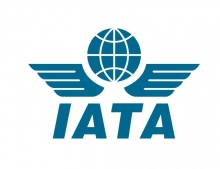


+58 274 2524216
With sensible precautions the visitor to Venezuela should remain as healthy as at home. There are general rules to follow which should keep you in good health when traveling.
Water in all main towns is heavily chlorinated, so safe to drink, but may cause abdominal upset. Most people drink bottled water. This is what we recommend as well. Canned and bottled soft drinks are safe to drink and widely available. Milk is pasteurized and dairy products are safe for consumption.
Medical attention and state health care is free. Inoculation against typhoid and yellow fever, and protection against malaria, is recommended for the Orinoco and other swampy or forest regions. Protection against mosquito bites is required after an outbreak of dengue fever in 1995. Therefore, bring a good insect repellent containing 50-90% Deet. Be sure to report any flu-like symptoms to your tour leader or doctor immediately. If you have any flu-like symptoms within six weeks after your return home, report to your doctor immediately, and tell him/her to test for malaria. The sooner you act, the better.
Some rivers are infected with bilharzias and in some areas there are warning signs; check before bathing. On the coast from Cumana eastwards precautions against vampire bat bites are warranted since they can be rabies-carriers. When traveling to the mountainous areas, beware of altitude sickness. It is a good idea to acclimatize for a few days before embarking on mountain treks. Factor 15-suntan cream is widely available. It is advisable to take out medical insurance. Make sure it covers all eventualities especially evacuation to your home country by a medically equipped plane, if necessary.
In the tropical climates along the coast and the throughout the Southeast portion of the country, there are biting insects. Bear this in mind when packing by taking along light, long-sleeve shirts, trousers, and a mosquito net at night as an added precaution.
Venezuela is in the tropics and the sun is strong. Wear a hat and protect yourself with loose, long sleeves, a high-factor sun block etc. as required. Keep in mind that at altitudes of the Andes and Mt. Roraima, the UV content is much higher: use some sun lotion even on cloudy days and use blocking cream when the sun is strong.
With sensible precautions the visitor to Venezuela should remain as healthy as at home. There are general rules to follow which should keep you in good health when traveling.
Water in all main towns is heavily chlorinated, so safe to drink, but may cause abdominal upset. Most people drink bottled water. This is what we recommend as well. Canned and bottled soft drinks are safe to drink and widely available. Milk is pasteurized and dairy products are safe for consumption.
Medical attention and state health care is free. Inoculation against typhoid and yellow fever, and protection against malaria, is recommended for the Orinoco and other swampy or forest regions. Protection against mosquito bites is required after an outbreak of dengue fever in 1995. Therefore, bring a good insect repellent containing 50-90% Deet. Be sure to report any flu-like symptoms to your tour leader or doctor immediately. If you have any flu-like symptoms within six weeks after your return home, report to your doctor immediately, and tell him/her to test for malaria. The sooner you act, the better.
Some rivers are infected with bilharzias and in some areas there are warning signs; check before bathing. On the coast from Cumana eastwards precautions against vampire bat bites are warranted since they can be rabies-carriers. When traveling to the mountainous areas, beware of altitude sickness. It is a good idea to acclimatize for a few days before embarking on mountain treks. Factor 15-suntan cream is widely available. It is advisable to take out medical insurance. Make sure it covers all eventualities especially evacuation to your home country by a medically equipped plane, if necessary.
In the tropical climates along the coast and the throughout the Southeast portion of the country, there are biting insects. Bear this in mind when packing by taking along light, long-sleeve shirts, trousers, and a mosquito net at night as an added precaution.
Venezuela is in the tropics and the sun is strong. Wear a hat and protect yourself with loose, long sleeves, a high-factor sun block etc. as required. Keep in mind that at altitudes of the Andes and Mt. Roraima, the UV content is much higher: use some sun lotion even on cloudy days and use blocking cream when the sun is strong.